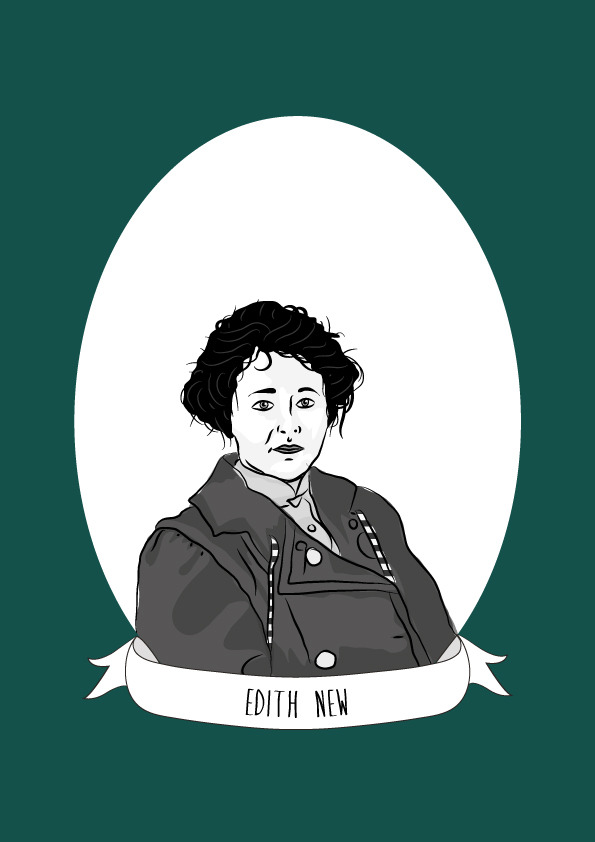Edith New was an English suffragette. She was one of the first to smash windows in an attempt to bring attention to women’s suffrage.
New had been an assistant mistress at Queenstown Infant School from 1899-1901 before leaving Swindon to teach in deprived areas of Deptford and Lewisham. After hearing Emmeline Pankhurst speak at a meeting in Trafalgar Square she joined the Women’s Social and Political Union (WSPU).
In February 1907 the ‘Women’s Parliament’ passed a resolution condemning the omission of women’s suffrage from the King’s Speech. A procession of around 400 women marched towards the Houses of Parliament. The peaceful demonstration turned into a violent confrontation with the police and Edith was among those arrested. She spent two weeks in a Holloway jail.
From 1908 New resigned from teaching and worked as an organiser and campaigner for the WSPU and travelled the country speaking on women’s rights. While in Scotland she was arrested for breach of the peace during a meeting in Dundee and sentenced to seven days imprisonment. New and the other prisoners went on hunger strike. They were the first to do so in Scotland.
In January 1908 New and Olivia Smith chained themselves to the railings of 10 Downing Street and shouted ‘Votes for Women!’ to distract the police while fellow WSPU members Flora Drummond and Mary Macarthur attempted to sneak inside. It was the first time such militant tactics had been utilised. The police arrested all four women but they did succeed in making their protests heard by the assembled Cabinet gathered inside. She spent three weeks in Holloway.
In June that year the hugely successful Women’s Day rally was held in Hyde Park. It attracted crowd of around 250,000 and New, who was by now an experienced and informative speaker, took her place alongside suffragette leaders. Later that month New and suffragette Mary Leigh broke two windows at 10 Downing Street during a protest. They were arrested and sentenced to two months in prison at Holloway. Emmeline Pankhurst visited them in prison to give her approval of their use of vandalism to get their voices heard and this led to further acts of vandalism and arson.
On her release from prison New was greeted by suffragettes including Christabel Pankhurst and presented with purple, white and green bouquets as well a medal in recognition of her contributions to the suffrage movement. While in prison, New, like many other suffragettes had gone on hunger strike in protest for women’s right to vote.
New returned to teaching in 1911, where she continued to campaign for women’s rights and equal pay within her profession.
